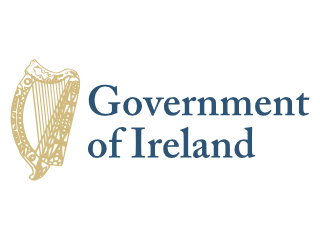Celtic tribes arrived on the island between 600 and 150 B.C. Invasions by Norsemen that began in the late 8th century were finally ended when King Brian BORU defeated the Danes in 1014. Norman invasions began in the 12th century and set off more than seven centuries of Anglo-Irish struggle marked by fierce rebellions and harsh repressions. The Irish famine of the mid-19th century saw the population of the island drop by one third through starvation and emigration. For more than a century after that the population of the island continued to fall only to begin growing again in the 1960s. Over the last 50 years, Ireland's high birthrate has made it demographically one of the youngest populations in the EU. The modern Irish state traces its origins to the failed 1916 Easter Monday Uprising that touched off several years of guerrilla warfare resulting in independence from the UK in 1921 for 26 southern counties; six northern (Ulster) counties remained part of the UK. Unresolved issues in Northern Ireland erupted into years of violence known as the "Troubles" that began in the 1960s. The Government of Ireland was part of a process along with the UK and US Governments that helped broker what is known as The Good Friday Agreement in Northern Ireland in 1998. This initiated a new phase of cooperation between the Irish and British Governments. Ireland was neutral in World War II and continues its policy of military neutrality. Ireland joined the European Community in 1973 and the euro-zone currency union in 1999. The economic boom years of the Celtic Tiger (1995-2007) saw rapid economic growth, which came to an abrupt end in 2008 with the meltdown of the Irish banking system. Today the economy is recovering, fueled by large and growing foreign direct investment, especially from US multi-nationals.
Ireland is a parliamentary republic.
Source: CIA World Factbook
Members:
Resources
Displaying 36 - 40 of 137Rules of the Superior Courts (Land and Conveyancing Law Reform Act 2009) 2010 (S.I. No. 149 of 2010).
These Rules amend the Rules of the Superior Courts in relation with the resolution of disputes mentioned in the Land and Conveyancing Law Reform Act 2009 and registration of lis pendens and other (relief) proceedings for purposes of the Act. Special summons for relief may be taken out by a mortgagee or mortgagor according to these Rules.
Implements: Land and Conveyancing Law Reform Act 2009 (No. 27 of 2009). (2009-07-21)
Agriculture, Fisheries and Food (Delegation of Ministerial Functions)(No. 4) Order 2008 (S.I. No. 292 of 2008).
This Order confers powers and duties of the Minister for Agriculture and Food, other than powers to prosecute an offence, to the Minister of State at the Department of Agriculture and Food insofar as they relate to Acts and Instruments specified in Part 1 or 2 of the Schedule to this Order.
Regulation on Preservation and Expansion of the Green Spaces in the Cities.
The Regulation, which consists of 8 articles, lays down provisions relating to the expansion of green spaces in the urban areas. The Regulation prohibits cutting trees in public areas, gardens and parks within the boundaries of the cities. Any violation of the provisions of this Regulation shall be punished by imprisonment and fine. Municipalities are the responsible authorities to implement this Regulation.
Amendment of the Law on Preserving the Land Use of Farms and Gardens.
This Law, which consists of 8 articles, is codified to amend and add a number of supplementary provisions to the Law of 21 June 1995 on Preserving the Land Use of Farms and Gardens. The main rules of the afore-mentioned Law on Preserving the Land Use of Farms and Gardens remain unchanged and some detailed regulations have been amended or added by this Law. In particular, the Law adds 6 articles (articles 7 to 12) to the said Law. Accordingly, providing that any public service and infrastructure in farms and gardens may be allowed only after official authorization for land use change.
European Union (Household Food Waste and Bio-waste) Regulations 2013 (S.I. No. 71 of 2013).
These Regulations promote the segregation and recovery of household food waste. They place obligations: a) on waste collectors to have a separate collection service for household food waste; and b) on the householders who produce food waste to segregate such waste and make it available for separate collection. Producers may alternatively compost the waste on the premises where it arises under specified conditions or take it to authorised facilities such as civic amenity sites, composting sites, anaerobic digestion sites or for incineration.


